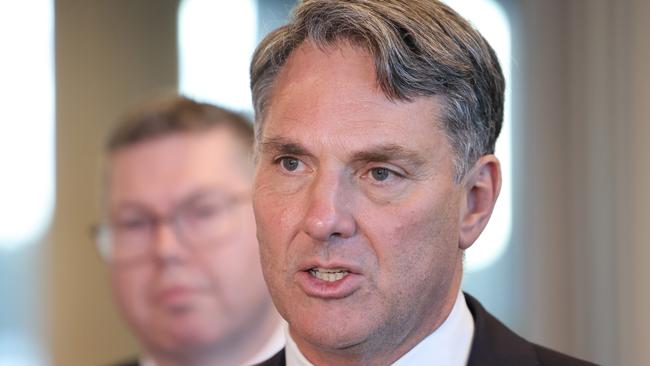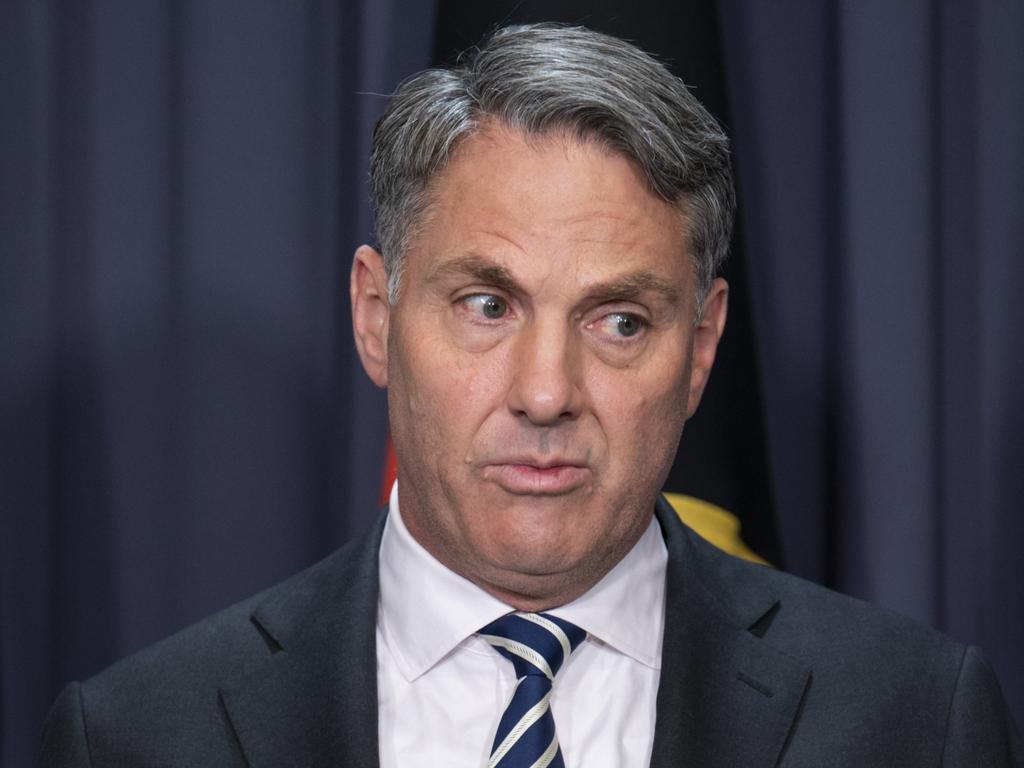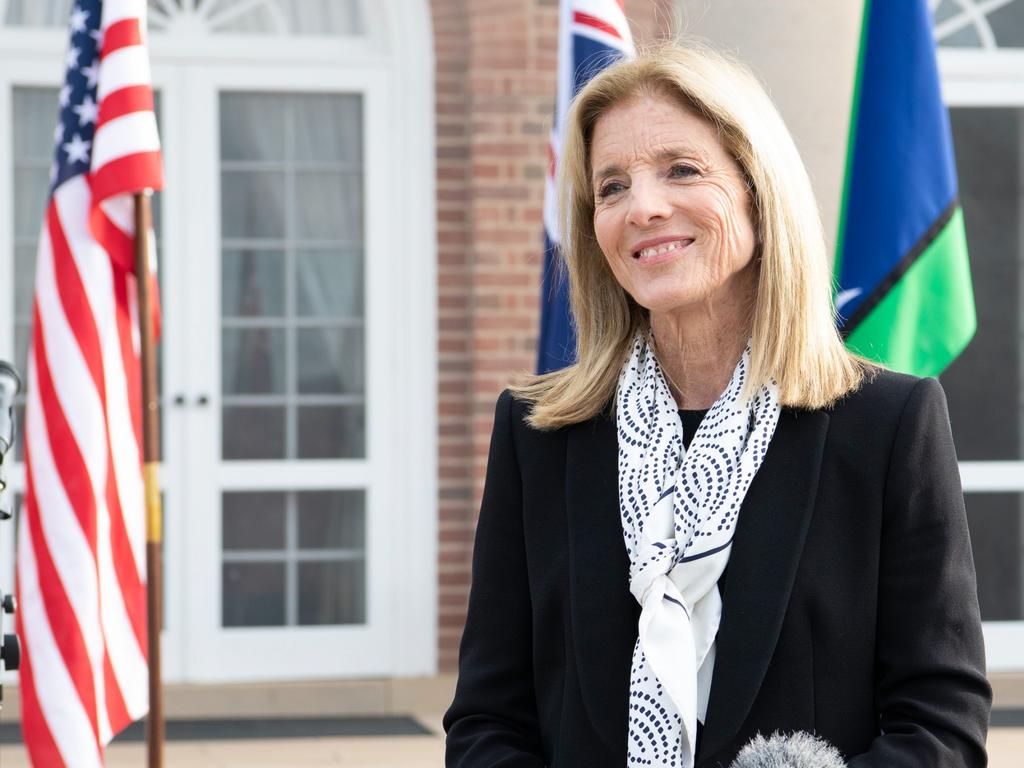Richard Marles on the attack in revival of Australian Defence Force
Richard Marles wants to substantially increase the lethality and strategic strike power of the ADF within seven years — a near-unique circumstance in recent history.

Defence Minister Richard Marles wants to substantially increase the lethality and strategic strike power of the Australian Defence Force within the next five to seven years.
This is an extremely ambitious time frame which would almost certainly make the Albanese government accountable for real-time defence delivery, a nearly unique circumstance in recent Australian history.
Independently of the process to acquire eight nuclear-powered submarines under the AUKUS agreement with the US and the UK, Mr Marles is determined Australia must act in the immediate future to beef up its deterrent capabilities.
“The Defence Strategic Update in 2020 was a very important piece of work which made big observations which I agree with,” the Defence Minister told The Australian.
“The setting we’d had for a long time, that if anyone wanted to do us harm we’d be given 10 years warning, no longer applied.
“Now we are observing that we are within that 10-years window,” he said.
The Albanese government wants to acquire much greater missile and drone capacity for the ADF. The previous government’s initiative to produce a domestic guided missile manufacturing program, initially announced more than two years ago, had languished and made very slow progress.
Mr Marles indicated it was a high priority for the new government: “We need a whole lot of urgency around that, and now there is that urgency,” he said.
Mr Marles confirmed that the government plans to build the eight nuclear submarines in Australia. However, it is not possible that Australia could ever build the nuclear reactor and associated propulsion system in the submarine, so every nuclear sub would be partly built in Australia and partly built in the US or the UK.
It could be that the first nuclear-powered sub is mostly built overseas and the eighth one is mostly built in Australia.
“We are going to need to develop over time the ability to build them in Australia,” Mr Marles said.
“If we are going to get the whole eight in good time, we’ll have to make our own contribution to the joint industrial base (of US, UK and Australia).”
These comments contradict the plan outlined by Opposition Leader Peter Dutton, that when he was defence minister he believed he could get the first two nuclear submarines built in the US and increase the overall number from eight to 10.
Mr Marles also confirmed that the force posture review which Labor announced in opposition would now also look comprehensively at the force structure of the ADF.
This means it could recommend scrapping certain assets and programs and choosing others in their place.
Mr Marles is expected to shortly announce two independent co-chairs of this review, which he wants to report by March next year, when the separate task force working on AUKUS subs will also report.
The Albanese government, he said, was committed to 2 per cent of GDP for defence spending, and also committed to “the funding envelope around the integrated investment plan” which is scheduled to cost $270bn over 10 years.
However, the government is not committed to all the programs within that investment plan, and the force structure review would examine the plan to see if it was fit for purpose.
Mr Marles said the ADF needed to be able to defend the continent, dominate our maritime approaches, secure sea lanes, and earn Australia international respect.








To join the conversation, please log in. Don't have an account? Register
Join the conversation, you are commenting as Logout